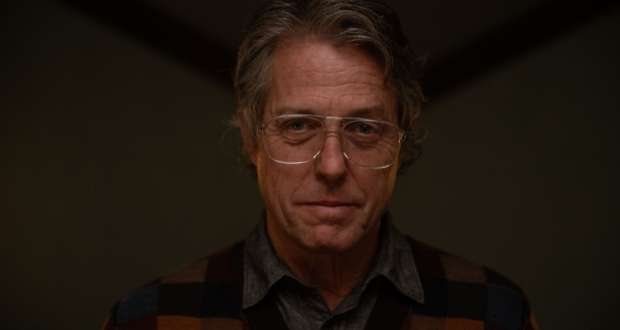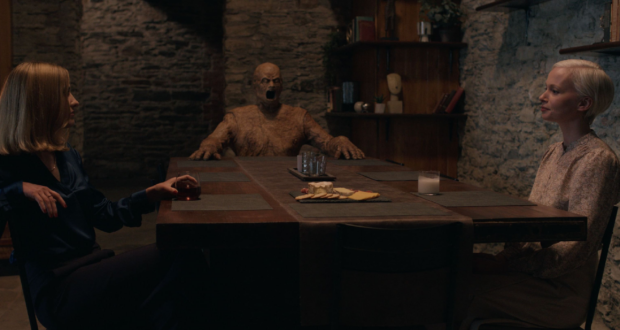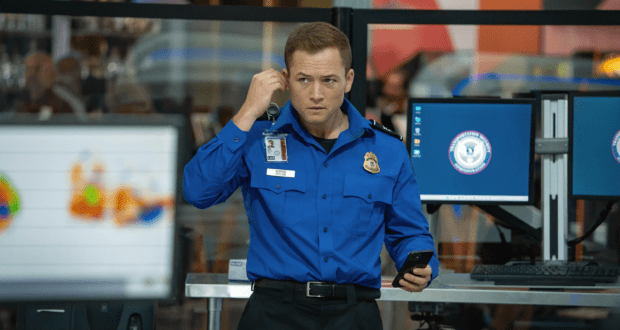Saw X weaves a complex tapestry of suspense, redemption, and betrayal, marking a riveting addition to the iconic horror franchise. Directed and edited by Kevin Greutert, and penned by the talented duo of Josh Stolberg and Peter Goldfinger, this installment bridges the narrative gap between the original Saw and its sequel, Saw II. The film’s storyline ventures into uncharted territory, injecting fresh blood into the series while retaining the signature elements that fans adore.
In Saw X, John Kramer travels to Mexico for a risky and experimental medical procedure in the hopes of receiving a miraculous cure, only to learn the entire procedure is a fraud intended to take advantage of the most helpless. The notorious serial killer, now motivated by a new goal, uses bizarre and clever traps to defeat the con artists.
The Good:
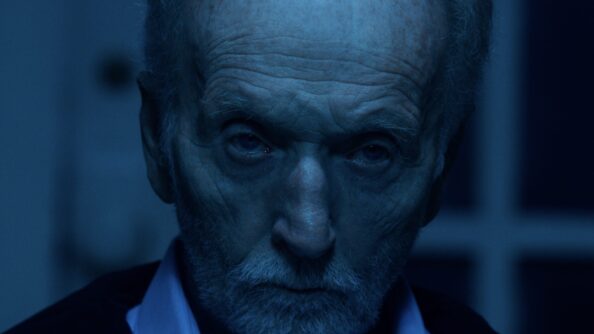
Tobin Bell‘s portrayal of John Kramer, the enigmatic Jigsaw, is nothing short of magnificent. While we’ve obviously seen him in every single Saw movie except for Spiral, he is relatively a side character in his films. Most Saw films follow the person who is trapped in his game, while we occasionally cut to some detectives trying to put the pieces together and hunt down Jigsaw. But not here. Tobin Bell’s Jigsaw is put front and center of this story, which is one of the wisest choices they could’ve done.
His performance transcends the screen, delving deep into the psyche of a man grappling with his mortality. Bell’s nuanced delivery captures the essence of a character torn between his principles and the grim reality of his own impending demise. His performance is, without a doubt, Oscar-worthy, capturing the torment, resilience, and twisted morality that defines Jigsaw. Will he actually receive an Oscar nomination for his role? Unfortunately not. But in a perfect world, he would.
The film’s strength lies in its ability to make audiences empathize with Jigsaw, a feat achieved through clever storytelling and compelling character development. As the audience delves into John Kramer’s desperate search for a second chance at life, they find themselves unexpectedly rooting for a character previously perceived as a cold-hearted antagonist. This shift in perspective is a testament to the film’s exceptional writing and Bell’s impeccable acting, which humanizes Jigsaw in ways previously unexplored.
Saw X excels in its ability to keep viewers on the edge of their seats. The intricate traps, ingeniously designed by the diabolical minds behind the franchise, elicit genuine tension and nail-biting suspense. Each trap is meticulously crafted, posing a moral dilemma that challenges the characters’ beliefs and pushes them to their limits. The creativity displayed in these sequences showcases the filmmakers’ dedication to delivering a visceral and heart-pounding experience.
The film’s supporting cast delivers commendable performances, with Shawnee Smith reprising her role as Amanda Young, Synnøve Macody Lund portraying the cunning Cecilia Pederson, Steven Brand embodying the desperate Parker Sears, and Renata Vaca bringing depth to the character of Gabriela. Their collective efforts enhance the film’s emotional resonance, adding layers to the intricate web of deceit and desperation. But it’s Smith who gets the meatiest supporting role here as Amanda. She is one of the most fascinating characters in the entire franchise, and while she was quite intriguing in Saw II and Saw III, it’s safe to say that she has never been better in Saw X.
A large portion of the film focuses on Amanda’s doubts on taking over for John once he inevitably passes away from cancer, and we frequently see John reassuring her, telling her that she has what it takes and is ready. In a way, it’s weirdly beautiful and heartfelt even though we know we’re watching two psychopathic characters who put people in deadly traps. It’s hard to think of another film that makes you care for the villains so deeply.
By making a handful of characters in Saw X that somehow feel even more sick and twisted than Jigsaw and Amanda is truly brilliant screenwriting. If they do ultimately decide to make another Saw film after this one, they surely need to bring back Goldfinger and Stolberg, as they’ve shown that they absolutely know what they’re doing with these characters. And, no spoilers of course, but this film does contain an extraordinary end-credits scene that will have longtime Saw fans giddy, myself included.
The Bad:
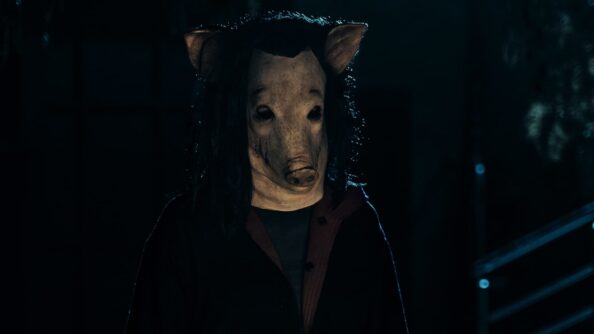
However, Saw X is not without its flaws. At times, the plot becomes convoluted, requiring viewers to piece together fragmented information to fully grasp the intricacies of the story. While the complexity adds depth to the narrative, it may leave some audience members feeling slightly disoriented. Additionally, some character motivations, particularly towards the film’s climax, might appear slightly contrived, requiring a suspension of disbelief to fully invest in the unfolding events.
Overall:
Saw X stands as a magificent entry in the franchise, skillfully blending elements of horror, suspense, and psychological drama. Tobin Bell’s exceptional performance elevates the film, making it the second best entry in franchise that’s been going on for nearly two decades now. The film’s ability to evoke empathy for its iconic antagonist is a testament to the filmmakers’ storytelling prowess. While it occasionally stumbles in its complexity, the film’s gripping traps, stellar performances, and unexpected twists make it a must-watch for both longtime fans and newcomers to the series. Saw X is a thrilling rollercoaster of emotions, reminding audiences why the Saw franchise continues to captivate and terrify audiences worldwide.
Saw X Review: One of Jigsaw's Best Games Ever
-
Acting - 9/10
9/10
-
Cinematography/Visual Effects - 8/10
8/10
-
Plot/Screenplay - 7.5/10
7.5/10
-
Setting/Theme - 7.5/10
7.5/10
-
Watchability - 8.5/10
8.5/10
-
Rewatchability - 8/10
8/10


